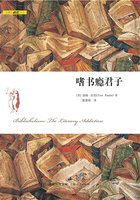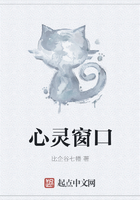Survivors in the Slaughterhouse
The animal connotation of the word“slaughterhouse”is apparent:it is a place where animals are killed for consumption, usually in large quantity。 In the literature of war, the word's metaphorical meaning has also become an established trope:the battlefeld is like a slaughterhouse where lives are destroyed in the most careless way, usually in large number。There are representative works in American literature that emphasize either of the meanings of the word。For example, Upton Sinclair's The Jungle(1906)exposes with journalistic truthfulness the horrifying conditions of the meatpacking industry in Chicago at the turn of the 20th century, while The Red Badge of Courage(1896)discloses the senseless nature of war in its butchering of lives。What is unique about Slaughterhouse-Five, however, is that both of the significations are addressed:it is a superb novel that portrays the cruelty and meaninglessness of war, but at the same time, the slaughterhouse is a real locus in the novel, instead of a“disembodied”metaphor only。While most critics have taken for granted the frst signifcation of the word, they largely ignore the second。I believe, nevertheless, there are particular implications in the plot that Billy and a hundred other American prisoners survive the devouring firebombing of Dresden by hiding in the underground meat locker of an actual slaughterhouse。
The theme that war is like a slaughterhouse is almost self-evident in Slaughterhouse-Five。 First of all, the title makes unequivocal suggestion of the allusion。Then in Chapter One, the narrator directly refers to Dresden firebombing as a“massacre”,the equivalent of slaughter with a human connotation。When the author-narrator makes it a commandment for his sons that“they are not under any circumstances to take part in massacres, and that the news of massacres of enemies is not to fill them with satisfaction or glee”(SF 19),he is basically implying that all wars are like slaughterhouses, regardless of its proclaimed goals。
The most straightforward and eloquent castigation of the“senseless slaughter”in war is given in Chapter Five, when Billy Pilgrim describes to the Tralfamadorians the Earthling's self-destructive killing:
“As you know, I am from a planet that has been engaged in senseless slaughter since the beginning of time。 I myself have seen the bodies of schoolgirls who were boiled alive in a water tower by my own countrymen, who were proud of fighting pure evil at the time。”This was true。Billy saw the boiled bodies in Dresden。“And I have lit my way in a prison at night with candles from the fat of human beings who were butchered by the brothers and fathers of those schoolgirls who were boiled。Earthlings must be the terrors of the Universe!”(SF 116)
What Billy is referring to is the horrible act the Nazis did to the Jews in the concentration camps and what happened during the Dresden firebombing—when people jumped into city fountains in the hope of escaping the heat from the burning air, they only found themselves plunged into scalding water。 The reference to the military people as“brothers and fathers”to the schoolgirls is both metaphorical and realistic。In the cosmic perspective created in the notion of the Tralfamadore, all Earthlings are kindred。The killing among Earthlings, then, is virtually killing one's ownblood。For Billy, such slaughtering has never stopped“since the beginning of time”。Back on the Earth, America is getting deeper and deeper entangled in a war in Vietnam, losing more and more of its young people。Still, at one of the Lions Club luncheon meetings, Billy hears a Marine major loudly advocate increased bombings in Vietnam,“of bombing North Vietnam back into the Stone Age, if it refused to see reason”(SF 60)。The irony is conspicuous:reason is to be achieved in the worst act of irrationality。Besides, slaughtering takes place in many other forms, among which are murder and assassination。Only“two nights”before the book is finished, we are told by the narrator in the last chapter, Robert Kennedy was shot, and“[h]e died last night。So it goes[……]Martin Luther King was shot a month ago。He died, too。So it goes”(SF 210)。In the world of Slaughterhouse-Five, Killing and death become common phenomena。Slaughtering is happening everywhere。
To add to the illustration of humanity's maniac propensity for killing and torturing, the narrator dwells on Weary's father's horrid collection of“guns and swords and torture instruments and leg irons and so on”(SF 35)。 The deion of Iron Maiden, a medieval torture instrument, is sickening:it is a sort of boiler“which was shaped like a woman on the outside-and lined with spikes。The front of the woman was composed of two hinged doors。The idea was to put a criminal inside and then close the doors slowly。There were two special spikes where his eyes would be。There was a drain in the bottom to let out all the blood”(SF 36)。One cannot help but wonder whether we should admire the ingenuity in the design or feel ashamed for the extent human cruelty can reach。As a matter of fact, only the combination of the two, ingenuity and cruelty, can create such inhuman instruments。Weary's invention of the worst form of execution is another example:“You stake a guy out on an anthill in the desert[……]He's facing upward, and you put honey all over his balls and pecker, and you cut off his eyelids so he has to star at the sun till he dies”(SF 36-7)。
In his discussion of“inhuman fictions of Swift and Defoe”,Philip Armstrong identifes a kind of inhumanity in the writings of both writers,“the kind of savagery that results from an excessive faith in rationality”(24)。 In Gulliver's Travels, for example, such savagery is exemplified in Gulliver's“trigger-happy enthusiasm for modern armaments”。Swift's ridicule of such enthusiasm is made in the mouth of the king of Brobdingnag。When Gulliver cheerfully describes the military use of explosives as evidence of the genius of his species, the king of Brobdingnag reacts with disgusted amazement that“so impotent and groveling an Insect as I could entertain such inhuman Ideas, and in so familiar a manner as to appear wholly unmoved at all the Scenes of Blood and Desolation”(qtd。in P。Armstrong 24)。Armstrong rightly points out that the inhumanity that the Brobdingnag king identifies is“located at the very heart of modern European polity itself”(24)。It is exactly the same kind of inhumanity that Vonnegut aims to expose in the collection of torturing instrument and Weary's fantasy of mutilation。The propensity for detached, reasoned, and calculated ruthlessness the 18th century satirist attacks is still at work in the 20th century。
As it is, Weary and his father are not exceptional:“He belonged to a big club composed of people who collected things like that”(SF 35)。 This reveals how extensive and massive such cruel and sadist torturing is in the human history and how much people are still fascinated by and take pleasure in the idea of torturing, even in times of high civilization。Here we see Vonnegut asking the same question that his much admired precursor, Mark Twain, asked:Why humans can be so cruel to one another?The answer Billy gets from the“wise”Tralfamadorians is resigned acceptance:“Ignore the awful times, and concentrate on the good ones”(SF 117)。There simply seems no way to stop it。
On the night of February 13,1945,the biggest human slaughter in the European history took place in Dresden。 As a survivor of the traumaticevent, Vonnegut makes bearing witness the central concern of his book。However, as he says in Chapter One,“there is nothing intelligent to say about a massacre”(SF 19)。In the fnal outcome of long years of struggling for painful memories and methods of expression, the deion of the frebombing is still fimsy, indirect, and scattered, as if the author is still trying to avoid direct treatment of the horror and pain。The image of the slaughterhouse becomes instrumental in this respect, both in its realistic function and the metaphorical meaning。Hiding in the meat locker two stories underground, Billy and his fellow American prisoners as well as their four German guards are shielded from the heat and smoke, but they are also precluded from seeing what is actually happening up there。So the duty of a realistic report is absolved。What comes out is largely abstract and impressionistic。
The only direct experience of the frebombing is“sounds like giant footsteps above”and“an occasional shower of calcimine”(SF 177)。The guards, upon returning from a peep at the head of the stairs, report that“[t]here was a fre-storm out there。Dresden was one big fame。The one flame ate everything organic, everything that would burn”(SF 178)。When it becomes finally safe for them to come out the next noon, Dresden, the“Florence of Elbe”,“the loveliest city that most of the Americans had ever seen”(SF 148),is gone。“Dresden was like the moon now, nothing but minerals。The stones were hot。Everybody else in the neighborhood was dead”(SF 178)。Soon Billy and other prisoners are made to dig up corpses from under the debris。When the corpses begin to rot and liquefy and stink like“rose and mustard gas”(SF 214),they are cremated by soldiers with famethrowers right where they are。
Here lies the most important metaphorical significance of the slaughterhouse image, an irony of the bitterest kind:the slaughterhouse where killing is normally conducted becomes a life-saving sanctuary, whereas above the ground, the city of ancient civilization becomes a huge slaughterhouse。 Even more ironic for Billy and for Vonnegut is that the“butchers”behind this human slaughter is not devilish Hitler, but the Allies, their own folks, the supposed army of justice。
However, the slaughterhouse is not only a metaphor。 It is a realistic setting, too—there is truly a slaughterhouse in the novel。This might be the reason why Vonnegut keeps the number“Five”in the tile—to indicate that this is a specifc slaughterhouse, a real one。
As the title of the book,“Slaughterhouse-Five”does not appear until near the end of the book(at the end of Chapter Six, on page 153,in a book of ten chapters and 215 pages)。 When the place is introduced to us, there is clear foregrounding of the literal meaning of the word:“The slaughterhouse wasn't a busy place any more。Almost all the hooved animals in Germany had been killed and eaten and excreted by human beings, mostly soldiers”,and,“It had been built as a shelter for pigs about to be butchered。Now it was going to serve as a home away from home for one hundred American prisoners of war”(SF 152)。In Chapter Eight, when the Americans and their German guards take shelter in the meat locker, they see—and we readers see through their eyes—real, butchered animals:“Down in the locker were a few cattle and sheep and pigs and horses hanging from iron hooks,”and“the locker had empty hooks for thousands more”(SF 165)。
So it is made certain that this slaughterhouse has been in actual service。 The files of hanging carcasses of farm animals and the empty hooks well inform us of the busy state of the slaughterhouse in peacetime and of the squealing and groaning of these“hooved animals”。The cruelty as described in Chapter Two of this book is called to mind。In effect, the narrator subtly calls our attention to the moral standing of the killing and consumption of animals when he puts the three steps of consumption in quick succession:killing, eating, and excretion, and clearly identifies the doer of the actions:human beings。It reveals how unfeeling people are to the animals they eat。It is almost a mechanic process, without any involvement of emotive concerns。But the narrator's persistent refrain“Soit goes”rings an alarm against such numbness and unconcern。
As a unique feature of Vonnegut's narration in Slaughterhouse-Five, the phrase“So it goes”has invited various interpretations。 In light of the animal-human relationship, the phrase shows Vonnegut's intention to undercut the distinction between species and races, nationalities and beliefs, even military stances, because it appears after every mentioning of death, momentous or insignificant, American or German, humans or animals。Rather than a sign of indifference or callousness to death, it is a sigh of mourning and a mark of respect for the dead。Since the narrator makes the sigh after every case of death, it shows his lament over the general debased condition of life in the universe, his esteem for life and his ideal of equality and harmony for all beings in the world。
With the presence of the realistic referent in the image of slaughterhouse, Vonnegut points out another aspect of the cruelty of war。 Humans not only kill in large number their own kind, but also numerous other species that are totally innocent of the sin or crime that the war is claimed to punish。If justice and revenge are the justifcation for the killing of human enemies, how do we legitimize the killing and victimization of the nonhuman animals?
In the scholarship of Kurt Vonnegut, when people talk about the significance of the title“Slaughterhouse-Five”,they usually focus on its metaphorical meaning, the theme that the value of human beings is debased in the war and people are killed like animals on the battlefield。 The meaning of“slaughterhouse”in the realistic order is often ignored。It refects people's habitual human-centered bias against animals as being of importance in their own right。Thinking of slaughterhouse as metaphor only in effect naturalizes the cruel treatment of animals, which absolves any sense of guilt in us。The logic goes like this:It is, or may be, ftting and natural to kill animals in this fashion, but not humans, so it deserves mourning and reflection when such cruelty happens to humans。
Humansuffering is substituted for animal suffering without appreciating the latter。When examining the role of the lambs in the movie The Silence of the Lambs(1991),Jhan Hochman points out this anthropocentric tendency in our thinking。While Clarice, the heroine, suffers from disturbed sleep because of the screaming of lambs which originates in her childhood on a ranch near a slaughterhouse, attempts to stop the screaming are made mainly through metaphor,“substituting people, Christian lambs, women in need, or just people, for screaming lambs”(300)。The victory in rescuing Catherine, a female victim, from the killer Buffalo Bill thus serves to relieve the screaming of the lambs。But Hochman reminds us that“these are lambs of the mind whose fate displaces that of real lambs, an erasure that eliminates the topic of animal cruelty that is unwittingly revealed by the title of the film”(Garrard 148)。The suffering of the real is left unattended in the end of the movie。
In her seminal book The Sexual Politics of Meat, Carol Adams isolates and names the phenomenon whereby animal suffering is appropriated and substituted, mainly in discourse, in human suffering。 She calls the animal entity displaced as the“absent referent”:
The animals have become absent referents, whose fate is transmuted into a metaphor for someone else's existence or fate。 Metaphorically, the absent referent can be anything whose original meaning is undercut as it is absorbed into a different hierarchy of meaning;in this case the original meaning of animals'fates is absorbed into a human-centered hierarchy。”(2010:67)
The common practice among critics to overlook the significance of the animals in the image of“slaughterhouse”speaks well of the structure of the absent referent。 Treating animals as absent referents, Vonnegut critics fail to accord the animals their own existence, a tendency which, as we have seen, Vonnegut tries to avoid。By entitling after the slaughterhousethe book that has caused him so much pain and frustration, Vonnegut, I think, wants to rescue the animals from becoming“absent referents”and to convey more than the word's metaphorical significance。After all, the battlefeld as a slaughterhouse is not an original invention of his。Sticking to it only makes him one other writer in the tradition of The Red Badge of Courage, although it is also true, as indicated by the twice mentioning of Stephen Crane's book, read by the only“heroic”character in the novel Edgar Derby(SF 99,105)。Vonnegut is to do something more。
Not only does he aim to condemn the dehumanizing war, he is also to interrogate humanity in general:its follies, its arrogance, and its inhumanity。This may explain the intricate interweaving of Billy's experiences of war with his life in peacetime contemporary America。As Douglass Brinkley puts it in his interview with Vonnegut,“Yes, the Nazis were the mega-villains but, in the end, Vonnegut's anger and despair was laid on the evil doorstep of the whole damned human race”(Brinkley 2007)。As a great lover of animals and a humanitarian writer, Vonnegut is fully aware that in the treatment of animals reveals human cruelty, which is especially true in wars。By keeping alive both its metaphorical and realistic meaning and by juxtaposing humans and animals in the image of the slaughterhouse, Vonnegut ingenuously enlarges his critical vision and significantly enhanced the power of his humanity critique。













